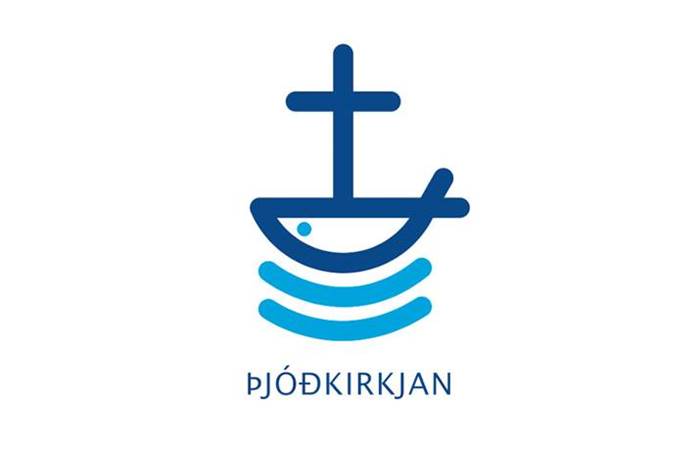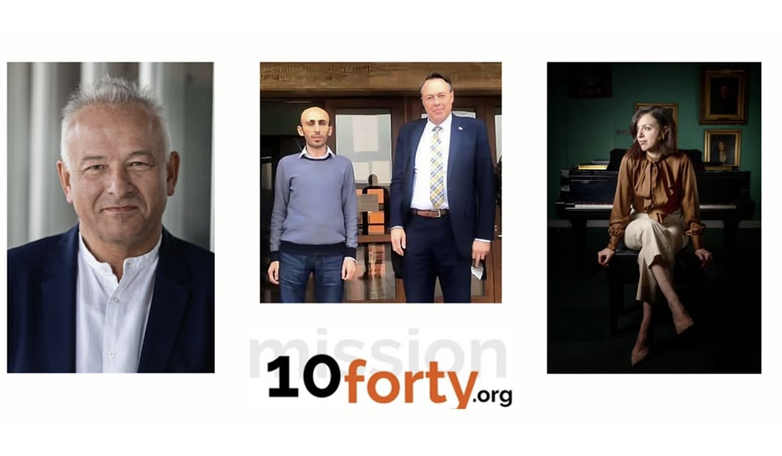Faith for nature lýkur - trúarsamtök taka höndum saman við Umhverfisstofnun Sameinuðu þjóðanna

Ráðstefnan "Trú fyrir jörðina - Fjöltrúarlegar aðgerðir" /"Faith for Nature- Multi-Faith Action" var haldin dagana 5.-8. október með Skálholt sem miðstöð. Fjögurhundruð og sextíu þátttakendur frá 60 löndum ræddu saman á skjáfundum í fjóra daga og þúsundir um allan heim hlýddu á ávörp trúarleiðtoga kristinna, múslíma, búddista, gyðinga, hindúa og fleiri trúarhópa. Mikil samstaða var um að atbeini trúarsamtaka og lífskoðunarfélaga væri nauðsynlegur til þess að tryggja framgang heimsmarkmiða Sameinuðu þjóðanna um sjálfbæra þróun.
Breiður hópur trúaðra einstaklinga og vísindamanna var virkur á ráðstefnunni eins og endurspeglaðist í sérstökum pallborðsumræðum á síðasta degi ráðstefnunnar, sem Ólafur Ragnar Grímsson, fyrrum forseti Íslands, stýrði. Í ályktun ráðstefnunnar er lýst yfir vilja samtaka með trúarlegan bakgrunn til þess að taka höndum saman við Umhverfisstofnun Sameinuðu þjóðanna. Guðmundur Ingi Guðbrandsson, umhverfis- og auðlindaráðherra, sagðist á ráðstefnunni myndu fylgja ályktuninni eftir á norrænum vettvangi og gagnvart Sameinuðu þjóðunum.
Skálholt var miðstöð ráðstefnunnar fyrir alþjóðlegt streymi og niðurstöður umræðna á fimm heimssvæðum (Asíu, Ástralíu, Afríku, Evrópu , Norður og Suður Ameríku).Á vefsíðu "Faithfornature.org" er að finna niðurstöður ráðstefnunnar, myndbönd og skjöl sem henni tengjast.
Í ályktun ráðstefnunnar segir meðal annars að trúarhreyfingar eigi að láta meira að sér kveða til heilla í umhverfismálum bæði heima fyrir í sínum samfélöum og í víðara samhengi:"Þeirri hugmynd vex nú ásmegin að mynda Bandalag trúarsamtaka og lífskoðunarfélaga fyrir jörðina í tengslum við Umhverfisstofnun Sameinuðu þjóðanna (UNEP) og við teljum að það yrði skref í rétta átt. Við hvetjum ríkisstjórnir til þess að gera hugmyndina að veruleika á fimmta Umhverfisþingi Semeinuðu þjóðannaa 2021. Til þess að ná árangri þyrfti slíkt bandalag að vera sameiginlegt verkefni Umhverfisstofnunarinnar og félagasamtaka með trúarlegan bakgrunn og lífsskoðunarfélaga. Það yrði brautryðjendastarf bæði innan Sameinuðu þjóðanna og á vettvangi fjölþjóðlegra og alþjóðlegra samtaka. Við erum reiðubúin til þess að taka höndum saman við Umhverfisstofnun Sameinuðu þjóðanna."
Sameiginleg yfirlýsing ráðstefnunnar sem Halldór Þorgeirsson las upp við lok ráðstefnunnar er svo hljóðandi;
High-level faith leaders, faith communities, and academics – recognising the triple threats of poverty and inequity, climate change and biodiversity loss – engaged in a global dialogue anchored at the historic cathedral of Skálholt in Iceland to discuss a coalition of hope, commitment and action.
From all corners of the globe we came together to hear the cry of Mother Earth. Religious institutions and faith communities have a long history in fostering sustainable development. Faiths cultivate values of compassion, community, and care for the vulnerable. We shared our love, compassion, and belief that the Earth is sacred, and we are called to be keeper of this sacred trust given into our care.
We came together in this global dialogue from diverse backgrounds and experience and were moved by a deep sense of global consciousness, concern for our planet and a commitment to demonstrate leadership. We emerged with a shared resolve to mobilize around the protection of nature and our common home, and to working through the proposed Faith for Earth Coalition to turn our commitment into action.
We do so recognizing that religious communities and faith-based organizations have a unique and vital contribution to make to global efforts on environmental protection and ecosystem restoration building on a growing track-record of multifaith action for nature. Faith and spiritual values drive individual behaviour and personal choices and shape cultural values, social inclusion, and political engagement. Faith communities with their vast networks, adherents, education structures and spiritual endeavours, are a valuable partner in the pursuit of sustainable development.
Recognising that there have been times when science and religion have been at odds, we commit ourselves to communicate spiritual insights informed by best available science. Harmony and balance between scientific and religious inquiry is essential for the advancement of humankind at this critical juncture. Local, traditional, and indigenous knowledge, wisdom and spirituality will continue to be an indispensable source of guidance. Efforts need to be made to cultivate synergies and mutual understanding between indigenous, religious, and scientific inquiry.
We recognise with profound concern scientific evidence on environmental degradation, climate change and biodiversity loss and the limited time available to achieve the deep transformation needed. The world’s faith-based organizations are uniquely placed to relay this science and rallying religious communities to act in defence of nature and environmental justice.
We have one common home. Global challenges faced by humankind are deeply interlinked and have a significant spiritual dimension. Appreciation for the spiritual nature of our being leads to a deeper sense of connectedness both with the natural world, of which humans are an organic part, and within the one human family. Humans have the responsibility to protect Earth´s live-supporting systems to ensure a sustainable human civilization on which both social and economic capital rest.
Current extremes of wealth and poverty need to give way to greater equity and justice. Justice in all its dimensions is a fundamental prerequisite for lasting unity. Investment needs to be redirected away from extractive economic activity towards green, inclusive, just, and regenerative economic development.
We need a movement with roots and wings. Insights and experiences from elders can reinforce the vision, passion, and creativity of the young. Faith communities draw their power from the interplay of generations, firm grounding in local realities and sense of belonging to a global community.
2
Recognising the challenge of patriarchy and the vital role of women as leaders in the environmental movement, we commit ourselves to ensuring that women are given access and opportunity to exercise full leadership roles.
The core environmental crisis is an ethical and moral issue. Responsible dietary choices moving towards plant-based diets and attention to the footprint of our consumption of energy and materials are an integral part of ethical stewardship of nature. Nature-based solutions, which are a win for livelihoods, climate, and biodiversity through protecting and restoring forests and other ecosystems need to be developed and scaled up. They offer an essential, reliable, and cost-effective way to address climate change and halt biodiversity loss.
This is a time of lament and a time of hope. We recognise what has been irreversibly lost and confess that we are living off the inheritance of generations to come. At the same time, we recognise the key role of faith communities as bearers of hope at a time when the environmental movement suffers from despair, which may lead to apathy. We will demonstrate bold leadership and catalyse transformation at all levels. Through hope, faith, empathy, and reason we can build a better future.
The sudden emergence of COVID-19 changed the global outlook. The very health and future of humanity depends on our ability to act together not only with respect to pandemics but also in protecting the global ecosystems. We must seize this moment to change course, protect and restore nature, reduce our vulnerability to deadly viruses and to the impacts of climate disruption.
People, Planet, Prosperity, Peace and Partnership – these are woven together through the 2030 Agenda and the Sustainable Development Goals thus providing a framework for urgent action and a roadmap for faith communities to work together. We recognise that there is still much work remaining to translate that vision into language accessible to people of faith in the local context.
Faith-based organizations around the world are committed to working across spiritual traditions and across sectors to take actions that protect and restore nature. We see it as a shared moral responsibility to contribute. The time has come for people of faith to work together for the planet given into our care.
The proposed Faith for Earth Coalition has a vision – in partnership with UNEP – to enable faith groups to promote action and influence policy choices at the local, national, regional, and international levels. We encourage governments to come to an agreement at the fifth United Nations Environment Assembly in 2021 to turn that vision into reality. We stand ready to join hands with UNEP to turn this ground-breaking vision into a model for others to emulate. We express our appreciation to the Government of Iceland, our Icelandic partners, Religions for Peace and the National Religious Partnership for the Environment (USA) for enabling this global exchange and resolve to disseminate our findings and channel our energy into focused and sustained action.
The Faith for Nature Conference was convened 5-8 October 2020 and used the historic Skálholt Cathedral in the South of Iceland as its global anchor from where high-level sessions were livestreamed. It achieved a global reach through online dialogues in five regions (Asia and Australia, Africa, Europe, North America, and Latin America and the Caribbean). The conference web site faithfornature.org provides a record of the proceedings, documentation, and conference outcomes.

.jpg?proc=NewsImageSmall)
